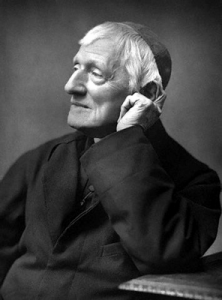SOCRATES — It is, in short, a kind of vice which derives its name from a particular habit, and this part of vice in general is a disposition contrary to that which the inscription of Delphi recommends.
PROTARCH — So you're talking about the precept: know thyself, Socrates?
SOCRATES — Yes, and the opposite of this precept, in the language of the inscription, would be not to know oneself at all.
"Know thyself" in order to improve yourself, to eliminate within yourself what hinders your growth. Not knowing oneself is already a fault for Socrates. "But not too much," because man so easily believes himself to be much more than he is; son of Adam, man is the plaything of his presumption. "But not too much" so as not to mistake yourself for a god.
This is one of the cornerstones of Greek culture: the idea of self-knowledge, the idea of wisdom, of progressing in wisdom, but also the feeling that digging too deep can lead to surprises, and not necessarily pleasant ones. The Greeks were very aware of human weaknesses and shortcomings. Along with the Christians, the Greeks were among those who most emphasized the possibility of human weakness, which is also what makes them so relatable to us. Human weakness is expressed in their Gospels and tragedies. Pity and terror are their two pillars. Know thyself… but not too much.
So far, yet so near. The idea of holiness, the idea that we are all destined for holiness (our free will being the only obstacle), is one of the defining characteristics of a Christian. The advancement in Greek wisdom takes on a new dimension in the choice of the path to holiness. But where the Greeks declared they were taking the path of wisdom to know themselves, Christians choose to embrace the vocation of holiness to become like God. In both cases, profound reflection, constant effort, and courageous dedication allow us to achieve some initial results. In both cases, it is knowledge that allows us to rise. Self-knowledge follows self-improvement. And if the path to holiness is open to all Christians, the path of self-improvement should equally be part of our life's journey. Indeed, the path to holiness cannot exist without this self-improvement.
Blessed Cardinal Newman wrote:
“Strange as it may seem, multitudes of people who call themselves Christians go through life without making any effort to attain an accurate knowledge of themselves. […] When I say strange, I don’t mean that self-knowledge is easy: it is very difficult to know oneself, even partially, and therefore self-ignorance is not strange. But what is strange is that people profess to receive the great Christian dogmas and to act in accordance with them, while remaining so ignorant of themselves, given that self-knowledge is the necessary condition for understanding them. […] Now, I repeat, if we do not have a correct idea of our hearts and of sin, we will not be able to form an accurate idea of what is meant by moral teacher, savior, or sanctifier: in other words, we will use terms in our profession of faith to which we attach no precise meaning. Thus, self-knowledge is at the root of all true religious knowledge.” […] It is first and foremost to our hearts that God speaks. Self-knowledge is the key to the precepts and doctrines of Scripture. All that any external preaching of religion can do is, at best, surprise us and make us turn our gaze inward to examine our hearts. And it is then, once we have experienced what it means to read within ourselves, that we will benefit from the doctrines of the Church and the Bible
I remember a very beautiful and moving sermon by Father AJ, a substitute priest, during a Sunday Mass at the Notre Dame du Lys chapel. The Gospel recounted the wedding at Cana. Father AJ based his sermon on the first sentence of the Gospel: Jesus and his mother were invited to a wedding. He built his discourse on the invitation we extend to Christ when we accept His presence, when we act as if He weren't there, when we openly slam the door in His face. Father AJ emphasized that in our daily lives, in our habits, we deny ourselves mercy by refusing to invite Jesus into our lives. Because too much of our lives is based on habit, a habit that is often rooted in a lack of humility. It is humility that compels the craftsman to continually return to his craft. It is humility that leads us to know ourselves. By knowing ourselves, by knowing how we act or react to events, by knowing the weaknesses that usually cause us to succumb, it is by knowing ourselves that we can allow Christ to be present at our side, and attain true religious knowledge.
 The links between ancient Greek philosophy and Christianity are numerous. The most famous of the Greek precepts, Gnothi Seauton , "Know thyself," inscribed at Delphi, retains a certain mystery. Another fragment of the phrase has remained with us: "But not too much"... Know thyself... But not too much! Plato leads Socrates to reflect on the Delphic formula in the Philebus :
The links between ancient Greek philosophy and Christianity are numerous. The most famous of the Greek precepts, Gnothi Seauton , "Know thyself," inscribed at Delphi, retains a certain mystery. Another fragment of the phrase has remained with us: "But not too much"... Know thyself... But not too much! Plato leads Socrates to reflect on the Delphic formula in the Philebus :
Leave a comment